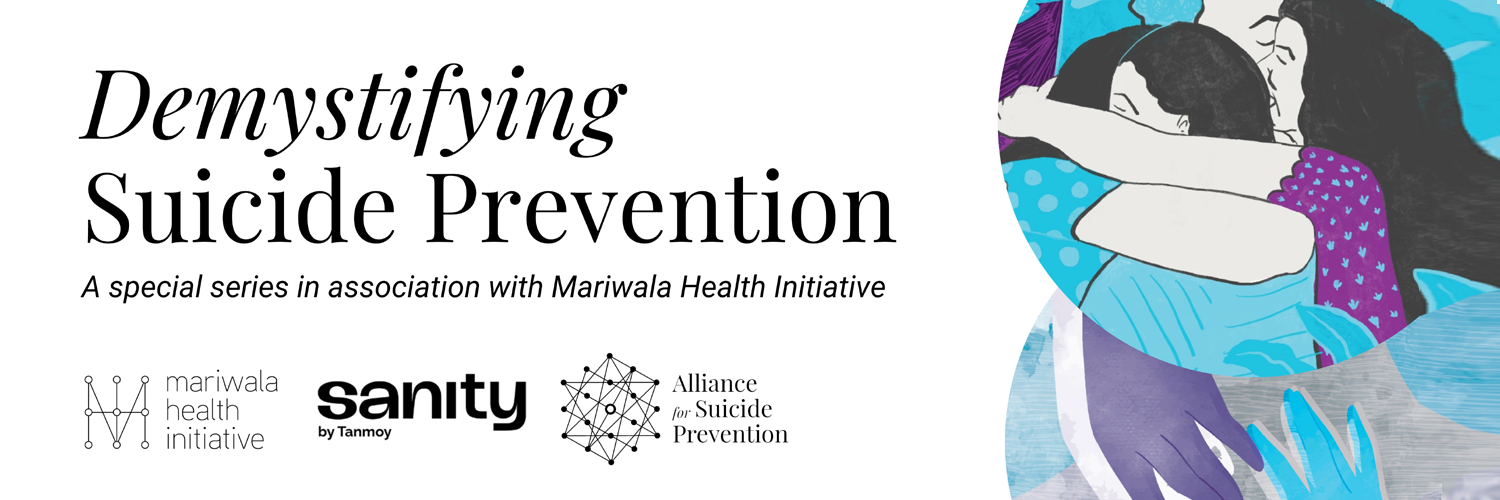
Ten years of saving lives: how Bangladesh’s first suicide prevention helpline proved naysayers wrong
When Yeshim Iqbal started Kaan Pete Roi 10 years ago, a suicide prevention helpline was an unheard-of idea in Bangladesh. Today, it is a case study on how to run a powerful, volunteer-driven platform in a resource-constrained setting.
Trigger warning
Contains references to suicide and suicidal ideation.
Kaan Pete Roi is the first suicide prevention helpline in Bangladesh — the world’s eighth most populous country with a population of over 160 million. It was founded in 2013 by Yeshim Iqbal, a research scientist at New York University’s Global TIES for Children Institute.
Iqbal’s research focuses on how people respond to violence and how belonging to certain social groups influences their response. She was a volunteer for a suicide prevention helpline in Boston when she got the idea of starting something similar in her home country, where mental healthcare professionals were in short supply and people living through emotional crisis had no safe space to turn to.
It was a radical venture in Bangladeshi society. “For the first several years, I was worried about money on a month to month basis,” Iqbal told me when we first connected last year. “Then during Covid, we collaborated with Sajida Foundation, which works on poverty alleviation and public health. They gave us the financial support to pull through. They liked our work and decided to stay on as supporters, helping us cover a lot of our costs. So that’s been a relief.”
Suicide, already a growing problem before the pandemic, today represents an even graver danger in Bangladesh, with one report claiming it caused more deaths than the coronavirus. In its tenth year of operation, Kaan Pete Roi’s work is more relevant than ever. Iqbal credits her team of young volunteers with the platform’s longevity and success.
“When we started, a lot of people told us we didn’t have a chance,” she says. “But the enthusiasm and commitment of our volunteers has been incredible.”
If you don’t understand Bangla (which is also my mother language — Bangladesh was part of undivided India until the country’s partition in 1947), it is hard to convey the gentle lyricism of the name Kaan Pete Roi. The literal translation is 'I am listening', but that doesn’t capture the soul of what it promises its callers: a human connection that’s gentle like lush green grass and firm like the earth it grows on.
During our long, unscripted conversation, I got the impression that Kaan Pete Roi derives this quality from its founder. Iqbal’s sharp insights into suicide prevention in a low-resource setting are offset by a refreshing lightness. “My number 1 learning from working with a team full of teenagers? Always keep food in the office,” she told me with a smile.
Edited excerpts:
Tanmoy Goswami (TG): Thanks for joining me, Yeshim. I am fascinated by the work that Kaan Pete Roi has pioneered in Bangladesh. How and when did the idea of starting the country’s first suicide prevention helpline come to you?
Yeshim Iqbal (YI): Thanks for having me, Tanmoy. So I started thinking about this more than 10 years ago. I was living in Boston at the time and volunteering with a local suicide prevention helpline. Telephone-based helplines have many advantages. They are relatively easy to set up in that they don't need very fancy technology. And they are run by volunteers who can do the job with a reasonable amount of training. They don't need to have a degree in psychology, just the capacity to be compassionate and non-judgmental. Also, these calls are anonymous, which is very important.
Almost as soon as I started volunteering, it struck me that a service like this would be very useful in Bangladesh, knowing that the country had a real shortage of mental health service providers, and that people here faced a lot of problems that they didn’t have a safe space to go with.
The way society is in Bangladesh, there are so many challenges — challenges on the educational front, on the family front, if you're a woman you have a whole other set of challenges.
Simple things like, you know, having a crush on somebody when you're 14 can become a complicated experience, especially when you don’t have anyone to talk to.
So I thought, let's try and see if we can build something for our people. And here we are, 10 years and thousands of calls later.
I should also mention that as of today, I have little role in the platform’s day-to-day operations. I try to be an advisor and a friend to the team, but Kaan Pete Roi is successful entirely because of our young volunteers. Their interest and commitment is very inspiring.
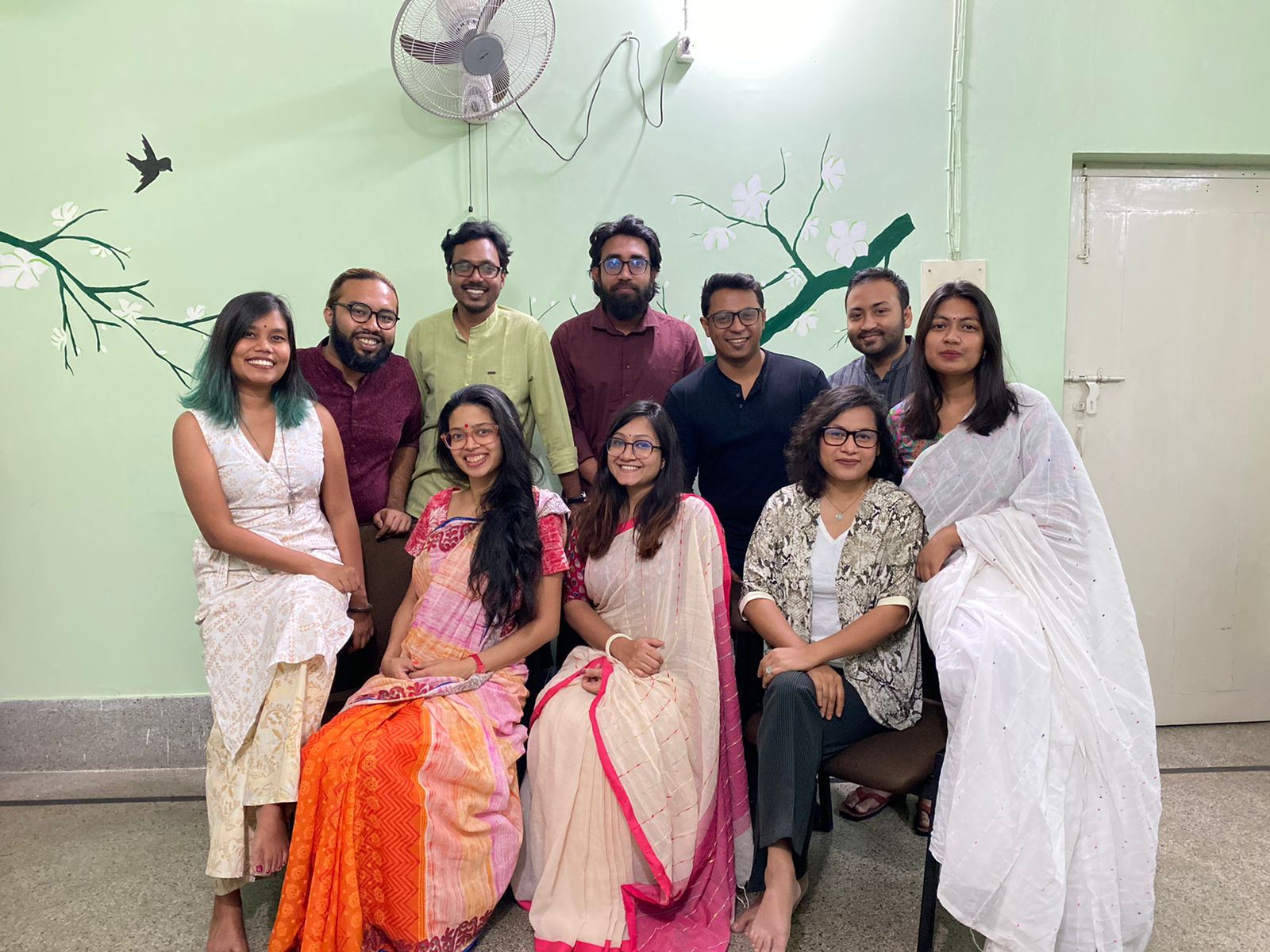
TG: What a great story, congratulations. Since you talked about young people — youth suicides are a major crisis in our part of the world. In India, for instance, suicide is the biggest killer of people under 40. Yet there aren’t too many focused suicide prevention interventions that target this age group. What’s your view on this?
YI: Based on the 10 years of phone calls that we've received in Bangladesh, I can say with some confidence that before we bring in a fancy intervention that targets suicide specifically, we must tend to the basics.
Feeling isolated or depressed is not an abnormal response to adversity. In fact, it's a very expected and predictable response. If you have to deal with a lot of parental pressure, if you have no capacity for exercise, if you are not given healthy food, if your school is violent towards you or puts so much pressure on you that you're not even able to be a child, feeling isolated and miserable is a very normal response.
TG: So true. What proportion of your callers would you say need help with these stressors compared with mental illness?
YI: We do receive a substantial number of calls from people who have diagnosed mental illnesses. But the vast majority of our calls are from people who are struggling with really basic problems, such as educational pressure, relationship complications, etc.
What we also don’t talk about enough is that physical and mental health are closely tied. And even with physical health and wellbeing, there are things that we are not yet adequately providing.
After working in mental health all these years, I’m at a point now where I have started taking a few steps back and wondering, I don't know how I expect this young woman to be healthy if she does not even have access to healthy food, is unable to exercise, and is being harassed by her male teacher at school every day. It's pointless to talk about her mental health until we fix these other problems.
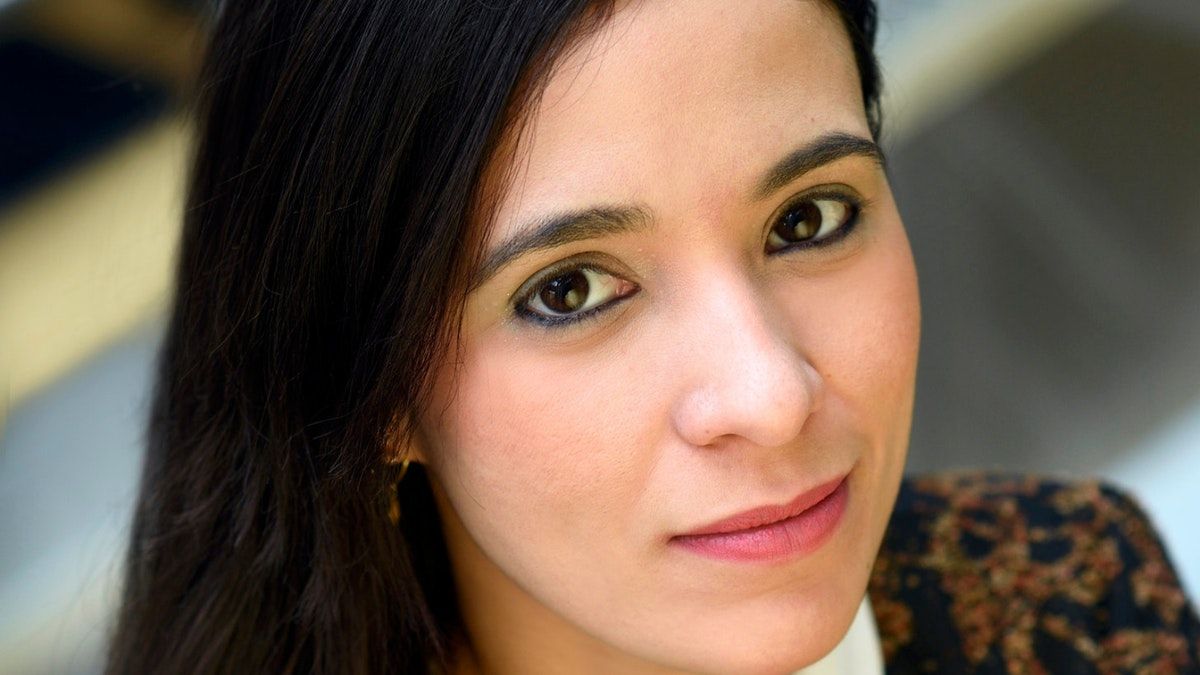
TG: Absolutely. In low- and middle-income countries in particular, we need to keep shouting from the rooftops that suicide is not just a ‘mental health’ issue. Since your first volunteering experience was in the US, did you discover anything in the early days of running a helpline in Bangladesh that took you by surprise?
YI: A few different things. First, once again, just how great the volunteers turned out to be. You know, many people told us this wasn’t going to work, that we couldn’t do this kind of work with volunteers, that volunteering for suicide prevention wasn’t a ‘fun’ thing to do. And yet the sheer number of people who came forward, almost all of them university students, and their enthusiasm to be part of this experiment was incredible.
When I was a young volunteer in the US, I would hop on the subway with my latte. But these kids in Bangladesh, they have to travel in crowded buses. They have to deal with the Dhaka traffic, they have to deal with the streets, they have to deal with the pollution. And they are still there every day, cheerful, smiling, ready to go.
In terms of the calls we received, there is this idea that women are ‘more emotional’ and ‘more depressed’. But for the first few years, our calls were heavily dominated by men. It made us realise the extent of problems that men face in our society. While I will not say that men experience the same level of challenges as women, it's possible that women have better social support and encounter less stigma.
We were also told that we would be overwhelmed by inappropriate calls. But at most, only 1% of the calls we received were inappropriate. People generally did not mess around with us.
And finally there was the stark difference in what people talked about. In the US, you hear a lot of loneliness or alcohol dependency. But in Bangladesh, one of the main themes is complicated family relationships.
“First off, let's just say that living with severe mental distress or suicidal ideation is very painful, no matter what. The suffering is profound, whether or not you're a person of faith.
On our helpline, we start from a secular, non-religious place. We never talk about religion, unless the caller themselves wants to. We've actually gotten some flack about that over the years, but for the most part, it works very well. We don't know if our caller is Muslim or Hindu or a non-believer. We don't even say Assalamualaikum on the phone, we just say hello. This is something we care about a lot, and we work with our volunteers to closely adhere to this philosophy.
That said, I do think faith beliefs can play a strong protective role and provide resilience and meaning in a difficult time. Also, religion provides community, which is probably one of its most important functions.
There's a lot of disdainful talk about religion, especially in the academic west. Any organised structure can be harmful because there's always going to be somebody who is marginalised by it. We need to acknowledge that as with most things in life, faith is a complicated topic. Do I think it erases the suffering of a mental illness or other hardships? No. But do I think that for some people, it can be very valuable? Absolutely.”
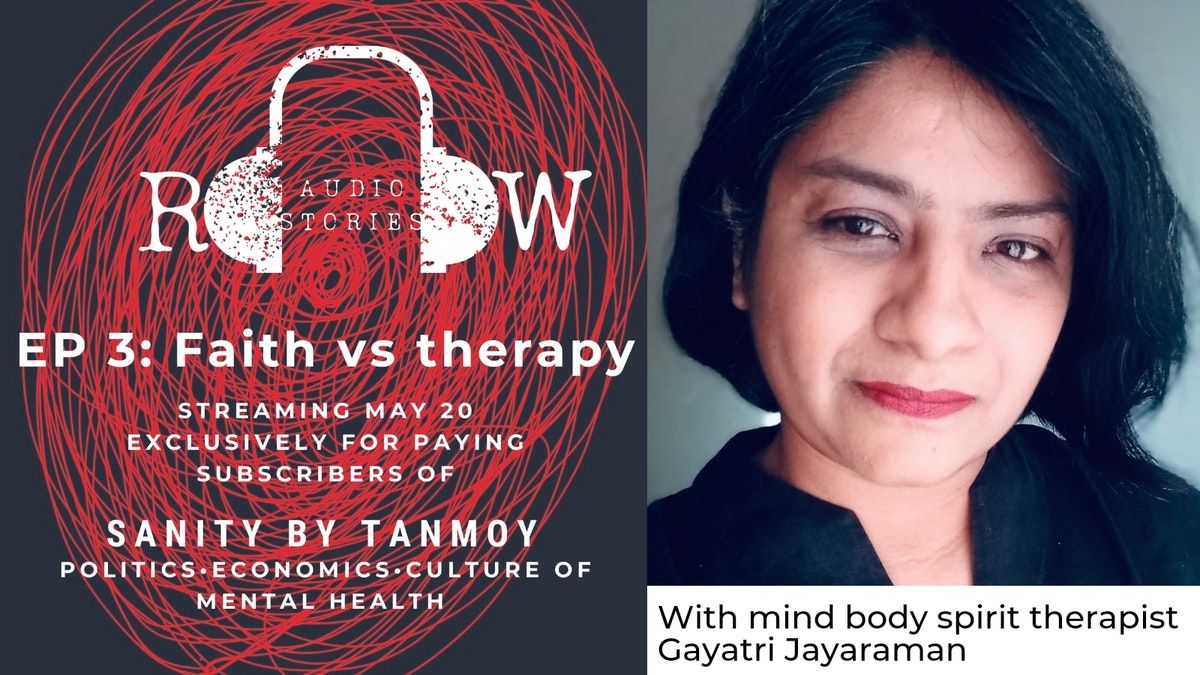
TG: Can you give us a sense of the volume of calls that you process every day?
YI: The helpline is open from 3pm to 3am every day. I would say we take between 15 and 50 calls per day. That number varies a lot depending on how much money you’re putting into outreach. If you increase the [investment in] social media content or TV advertising, you start to get more calls.
At the moment, most of our callers discover us on Facebook. We [understand] that there are entire swaths of the Bangladeshi population that we haven't been able to reach yet. These are folks who are much less sensitised to issues of mental health, or the idea that you could call someone on the phone if you needed help. It's a much harder demographic to reach — you know, people who are older, or people in rural areas, or people who are not on the Internet — and reaching them will probably require more resources.
TG: Right. So do you get the majority of your calls from Dhaka?
YI: We do get a lot of calls from Dhaka simply because that’s where we are based. But we also get calls from other big cities, even international calls from Bangladeshis living all around the world, for example in the US or Saudi Arabia. The other day we got a call from Algeria. We were running WhatsApp calling for a while to make it easier for such callers to reach us.
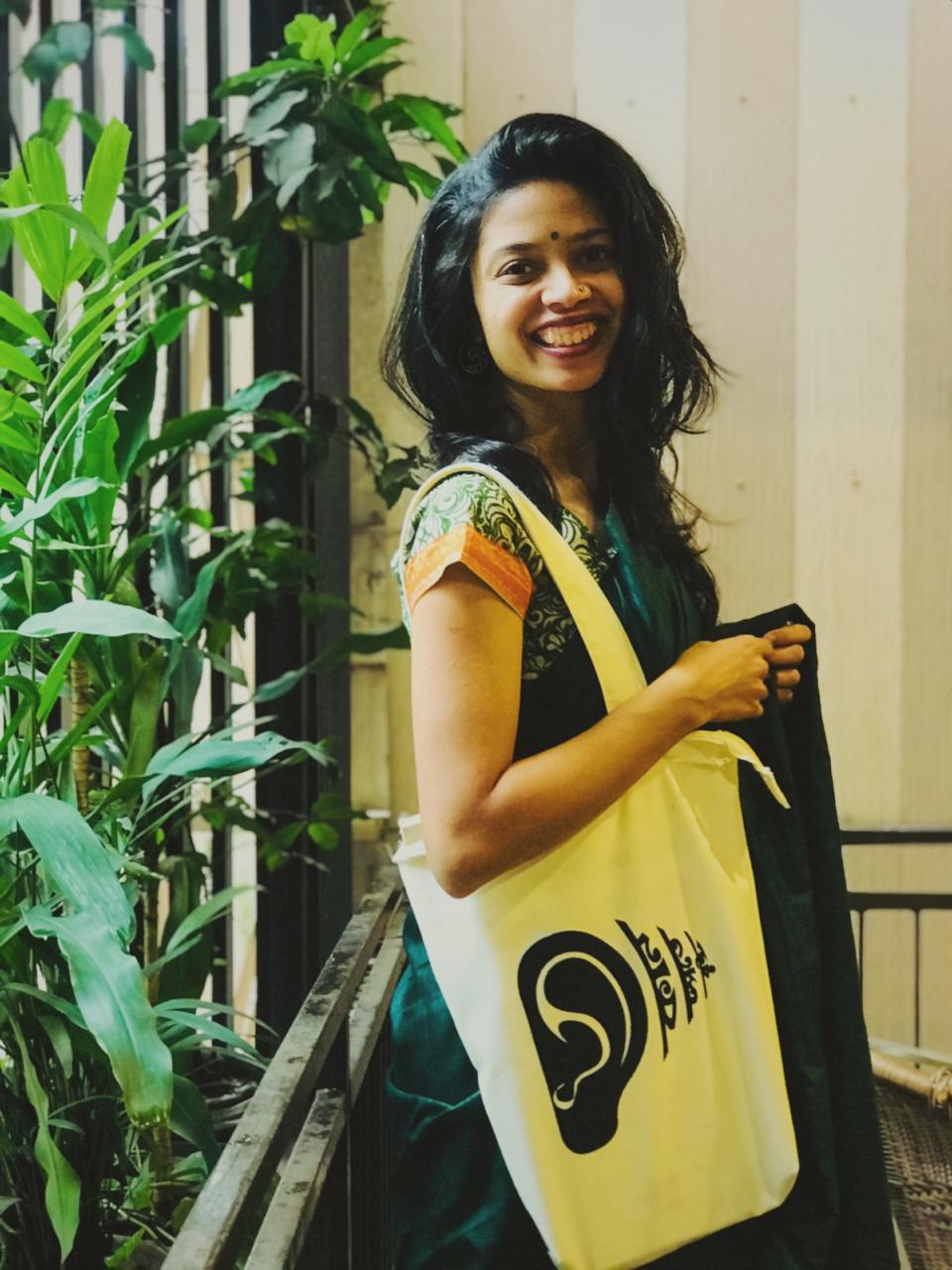
TG: How big is your team?
YI: We have about 60 active volunteers at any given time and a couple of hundred inactive volunteers who are part of the broader network. We also have a management team of almost 10 or 12 people. That number has grown after Covid when demand increased and logistics and coordination became complicated. Every single person working with Kaan Pete Roi started as a volunteer.
TG: Let’s talk about your volunteers then. You must be so proud of them (smiles).
YI: Oh yes, I am. I mean this whole thing would never have worked without them. First of all, it would have been insanely expensive but for volunteers. But it's more about the culture, right? [Note from Tanmoy: Research in the west has shown that volunteer-run helplines can deliver better outcomes than those run by mental health professionals.]
I always say to them, Look, I care about you more than I care about the callers, because if I don’t have you, I don’t have an organisation. I think this orientation has been vital to the success of Kaan Pete Roi.
TG: There’s a lot of literature about how businesses create ‘workplace culture’. How does a suicide prevention helpline go about creating a healthy culture?
YI: Glad you asked that. So ‘inclusivity’ is a term that is thrown around a lot these days, but we really do try to practise it. I'm proud to say that in our volunteer pool, we have people of every major religious or ethnic group in Bangladesh, and of varying sexuality and varying socioeconomic backgrounds.
[Since the work involves night shifts,] we also talk to the parents. We invite them to the office, we show them around, we give them the management’s number and tell them they can always call us if they have a concern.
When we do the volunteers' orientation and training, we let them know that there's absolutely no tolerance for any kind of discrimination or prejudice. I mean, the fact that they're coming to do this work means that they're already sort of oriented towards these things. But inclusive thinking is like a muscle, they get better over time, the more they practise it, the more calls they take. It's wonderful to watch them evolve.
The thing I enjoy the most is when people visit our office and meet our volunteers, they always say, Oh, this is such a fun group of people. It makes me very happy (smiles).
TG: This is so heartwarming to hear.
YI: Yes. We are also constantly talking to the volunteers about what they need to de-stress, what kind of self-care structures work best for them. A lot of sharing happens organically because they support one another as friends. We also have experience-sharing parties where we celebrate their outstanding work, we give them certificates, we give them a mug and a treat. These things are so small, but they go such a long way.
Another thing that we swear by is food. “Always have some food in your office” — this is one of my mother's many profound contributions to Kaan Pete Roi. You are dealing with 18-year-olds. They just rode a bus from class to get here. You absolutely must have food ready. So yeah, put food in the budget.
TG: I hope every government in the world makes note. “Put food in the budget.” It’s amazing how many problems in the world can be solved by just paying heed to that advice.
"First of all, just trusting the volunteers, trusting their knowledge and their experience, listening to them and learning from them. I grew up in Bangladesh but was educated in the west, so I came with some preconceived ideas. I had to drop a lot of them and go with the flow.
Then, making friends with everybody. We took our idea to psychologists, we took it to psychiatrists, we took it to academics, we took it to business people, and we said, Hey, this is what we want to do. Can you help us? I think the psychologists and psychiatrists have always viewed us as a friend, not as a competitor. There was one psychiatrist who used to stamp our numbers on his prescriptions.
And finally, I have learnt not to worry too much about every little nitty-gritty. When you are working in a field as new and taxing as this, sometimes you can make a decision and get it wrong. You apologise, learn from your mistake, and move on. It is very important to allow yourself that kind of flexibility."
Need help? This website provides contact details of free helplines around the world.
All images courtesy Yeshim Iqbal and Kaan Pete Roi.
This story is part of a special series on suicide prevention, supported by Mariwala Health Initiative. Click on the banner below to explore the entire series.
